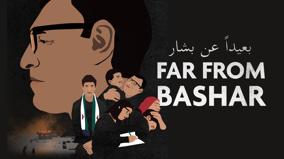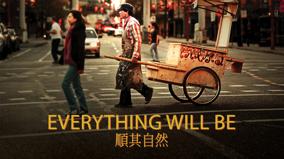Unspoken Tears (Trauma Through Words)
How can refugee children integrate into Quebec’s school system, given the unspeakable violence they’ve experienced? Following a psychologist specializing in conflict-related trauma, Unspoken Tears pays tribute to the admirable resilience and survival strategies of these “small adults,” whose spirit the bombs and camps have not completely crushed, at a time when it is vital to raise awareness in Western societies of migration-related issues and children’s rights.

Details
How can refugee children integrate into Quebec’s school system, given the unspeakable violence they’ve experienced? Following a psychologist specializing in conflict-related trauma, Unspoken Tears pays tribute to the admirable resilience and survival strategies of these “small adults,” whose spirit the bombs and camps have not completely crushed, at a time when it is vital to raise awareness in Western societies of migration-related issues and children’s rights.
-
participationGarine Papazian-ZohrabianArezki TerkemaniMandjey KamaraAlia AbedGeneviève CardinalSuzanne Des MaraisMartin DesprésLauriane El BoustanyMaya El NassranyDjessira KouroumaNoor MichaelAbdul-AzizBezaleelDjemga Keny DaveLinaLyneMeraMoustaphaNadaNaiaNajiNathanaëlSafaSangeethYasmineZakariaZenaAmerHibaIshakMarleyMounaNihalOuiamRominaValentinaYacineYalasYolande
-
researchHélène Magny
-
writingHélène Magny
-
directionHélène Magny
-
producerNathalie Cloutier
-
editingMichel Giroux
-
imagesArnaud Bouquet
-
location soundLynne TrépanierDimitri Médard
-
sound designBenoît DameCatherine Van Der Donckt
-
additional imagesElie BachaalanyWissam Charaf
-
additional soundMélanie GauthierSimon PlouffeGeneviève Thibert
-
production managerGeneviève Thibert
-
additional production managerÉvangéline de Pas
-
drone imagesDrone Box
-
technical support - editingPierre DupontMarie-Josée GourdePatrick Trahan
-
translationSami BasbousEli Jean Tahchi
-
transcriptsDifuze inc.
-
subtitlesDifuze inc.
-
graphic designAlain OstiguyCynthia Ouellet
-
animated graphicsAlain Ostiguy
-
online editingSerge Verreault
-
colourizationSerge Verreault
-
dialog editingLori Paquet
-
additional sound editingJérémie Jones
-
foleyStéphane Cadotte
-
foley recordingLuc Léger
-
re-recordingJean Paul Vialard
-
original musicSami Basbous
-
musicianCasey FultonFrédérique Tanguay-GagnonSadio Sissokho
-
music recordingGeoffrey Mitchell
-
music mixGeoffrey Mitchell
-
music recording - assistanceLuc Léger
-
negociation of additional musicLucie Bourgouin
-
legal advisorJulie Patry
-
marketing managerGeneviève BérardKarine SévignyNathalie Guérard
-
marketing coordinatorEric Bondo
-
administratorSia Koukoulas
-
senior production coordinatorJoëlle Lapointe
-
production coordinatorAlexandra BourqueCoralie DumoulinChinda Phommarinh
-
studio coordinatorGabrielle Dupont
-
technical coordinatorDaniel ClaveauMira Mailhot
-
line producerMélanie Lasnier
-
executive producerNathalie Cloutier
Education
Ages 16 to 18
Mini-Lesson - Unspoken Tears (Trauma Through Words): Secondary Capsule Mandjey Mini-Lesson - Unspoken Tears (Trauma Through Words): Primary Capsule Arezki
Civics/Citizenship - Human Rights
Diversity - Diversity in Communities
Health/Personal Development - Problem Solving/Conflict Resolution
















